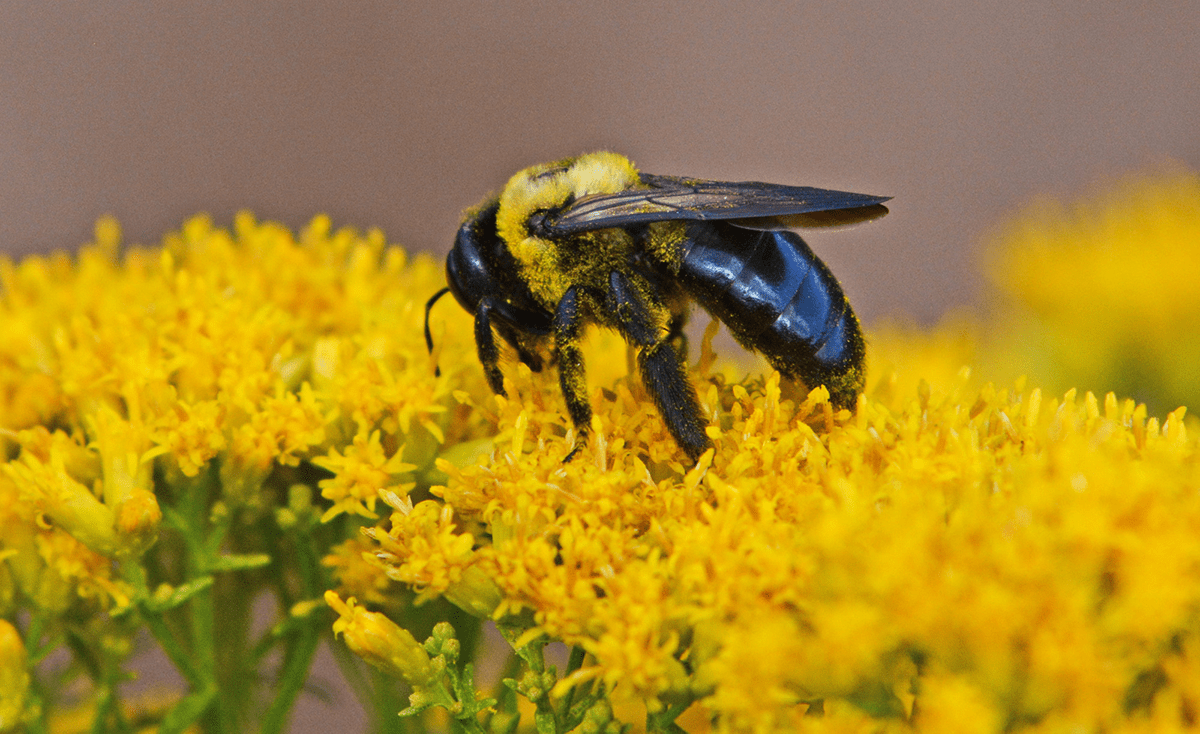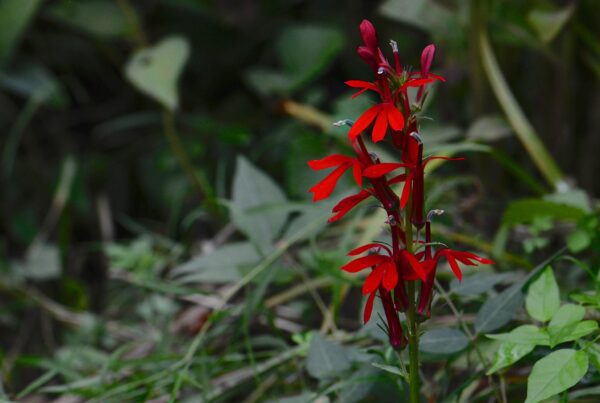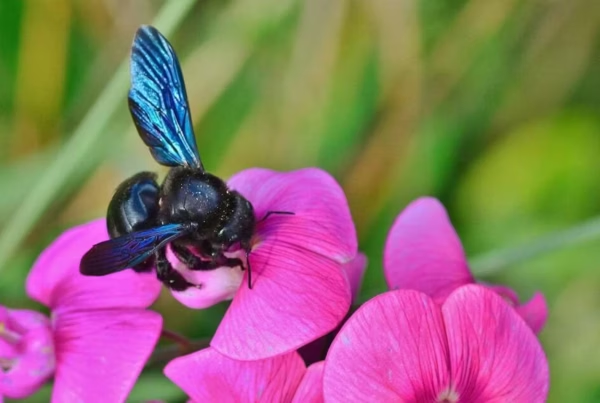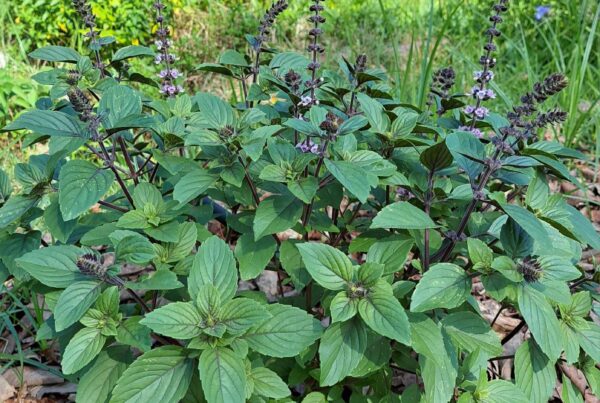We can thank pollinators for much of the food we eat. In fact, about 80% of our plants and crops are pollinated by insects. We know and love our butterflies and moths as pollinators and often help them by creating welcoming habitats in garden spaces large and small. Did you know that bees and wasps are much more efficient pollinators? They do much of the heavy lifting of pollinating plants, especially food crops.
Honeybees get a lot of attention and it’s true they are important for pollination. These non-native bees, brought from Europe, are integral to commercial crop production mostly because they are portable – their hives can be trucked over long distances to work specific crops. And we get delicious honey from these bees. But our native bees are better pollinators and even help control some harmful insects. Florida has over 300 species of native bees! Bumblebees, sweat bees, mason bees, and others all play a valuable role in the life cycle of plants and crops in local areas.
FWF partners with National Wildlife Federation to promote the Certified Wildlife Habitat program. During the month of June, you can save 20% on certification and a wildlife habitat sign. Part of proceeds from this program helps the Florida Wildlife Federation in our conservation mission.
Most of our native bees are solitary nesters, meaning a single female lays eggs in a nest in the ground, in plants with hollow stems or sometimes in trees or other wood. While any bee can sting if startled or threatened, solitary bees don’t have hives to defend so usually are not aggressive, though they might buzz by to get you to move away from their flowers.
We can include bees in planting for wildlife in our gardens. Having a variety of plants, with flowers of different shapes and sizes and different bloom times during the seasons is helpful to the bees. Solitary nesting bees appreciate a patch of soil that’s exposed or lightly mulched to dig a ground nest, as well as clumping grasses like Muhly grass or wiregrass. Finally, remember lawn chemicals and pesticides can be harmful or even fatal to bees and other pollinators. Florida Wildflower Foundation and NE Florida’s Native Bees are good sources for more information about attracting bees with native wildflowers.
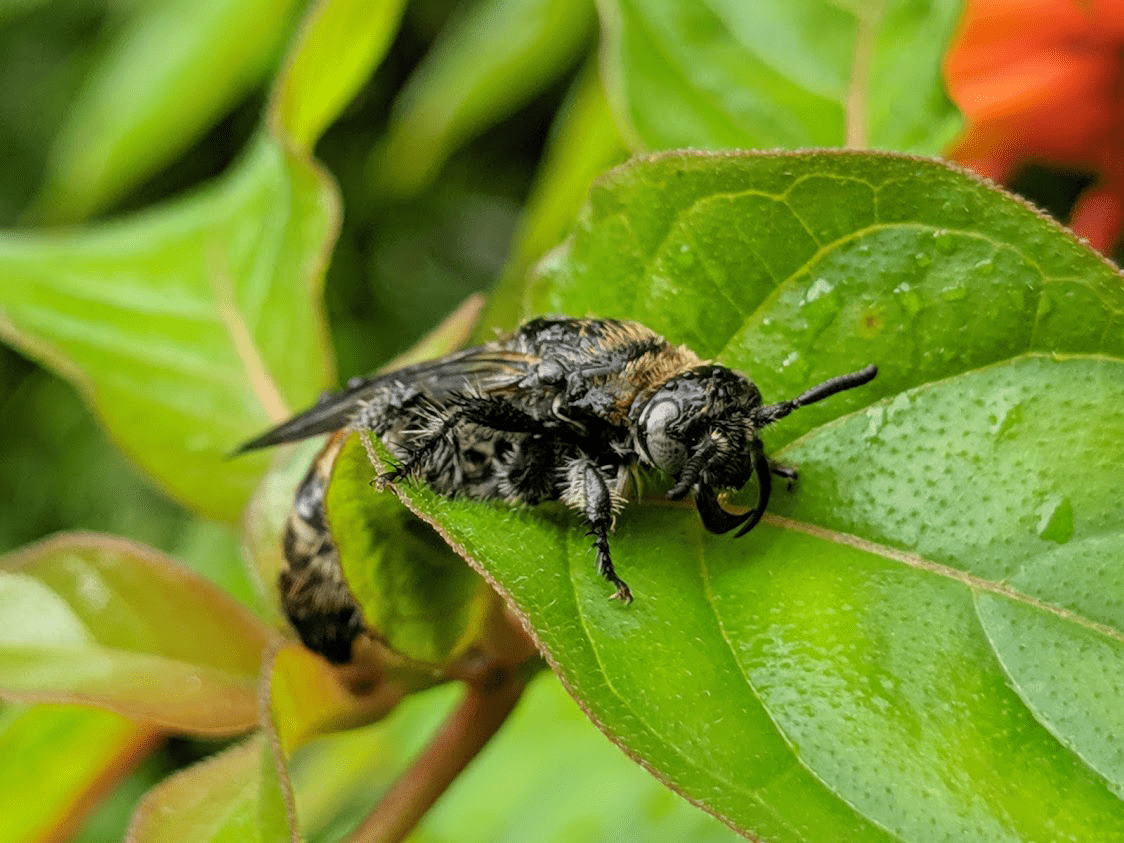
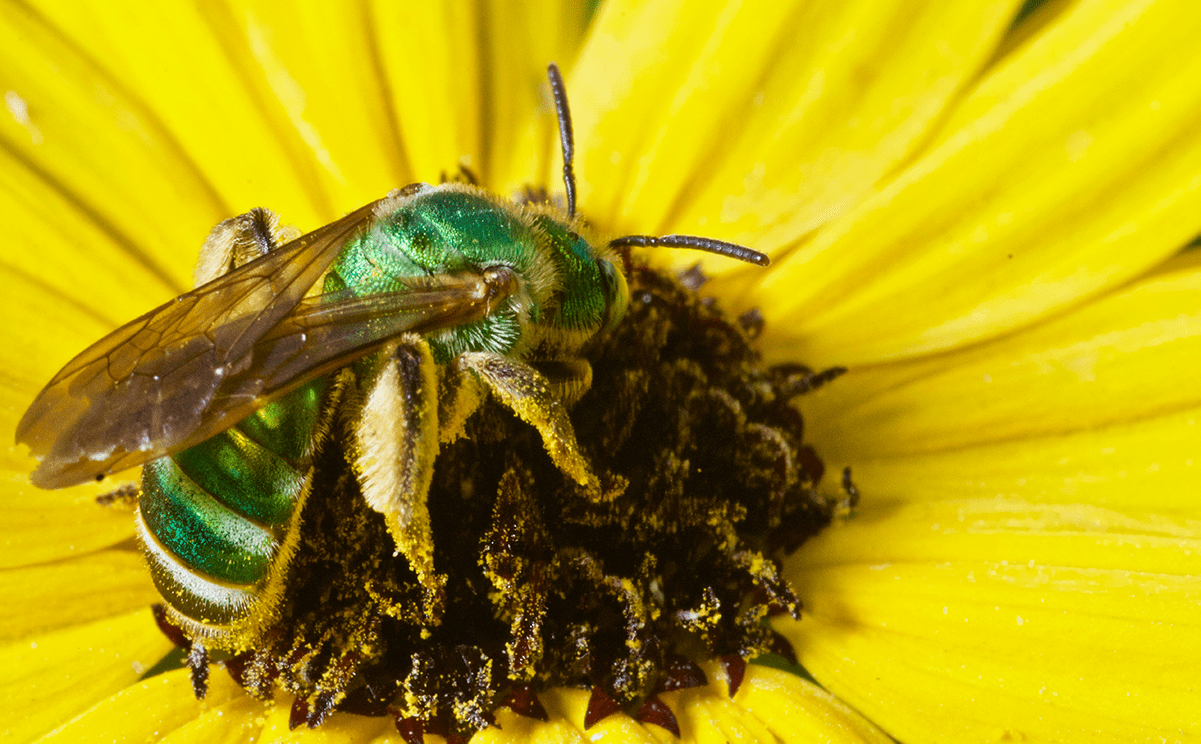
Photos by Charles Thornton, Nicole Bales, and Claire Goodowens.


